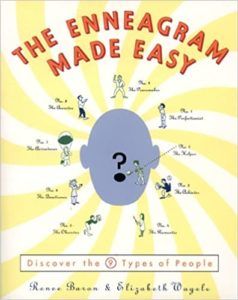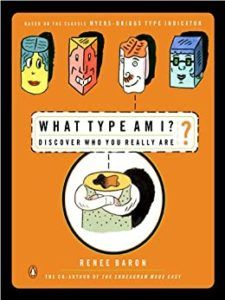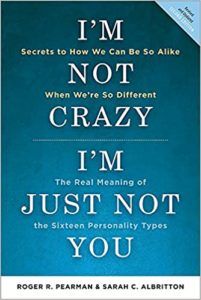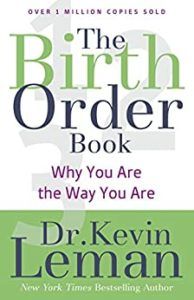Because, of course, what’s the first place we turn to when we want to learn about something? Books. Anne Bogel has an excellent book which introduces personality types, called Reading People, so if you need a primer on the different ways people have come up with to understand humans, that’s a great place to start. Below are some further recommendations for books on personality types, with apologies for the lack of diversity. Part of the reason for that lack of diversity, other than the usual societal and publishing issues, may be that a lot of these personality typing systems were developed by academics, using students as their research subjects – and those have historically skewed white, affluent, and, for a long time, male.
The Enneagram
The word Enneagram comes from the Greek word ennea, meaning nine. It divides people up into, you’ve guessed it, nine personality types, and it’s been around since ancient times. It has its roots in Sufi wisdom, and travelled through South America to reach us, so it hasn’t always been the obsession of white people.
The Enneagram Made Easy by Elizabeth Wagele and Renee Baron
This was my first book about the Enneagram, and it demystified it for me and made it easy to understand. There are lots of visual aids and cartoons as well as quizzes for each of the nine types to help you figure out where you fit.
Millenneagram: The Enneagram Guide for Discovering Your Truest, Baddest Self by Hannah Paasch
One of the newest offerings about personality books, the Milleneagram is a book which will look great on your shelf, but also doesn’t take itself too seriously. Hannah Paasch also hosts a podcast about the Enneagram, and she’s passionate about our understanding ourselves better through the system. “Only from this position of wholeness, rootedness in who we are, what we believe, and what kind of story we are writing, will we be able to act bravely for the sake of justice and humanity – to approach our f*cked-up world with the grounded courage it asks of us.” For more books on the Enneagram, see 19 Enlightening Books on the Enneagram of Personality You might also be interested in: The Enneagram Types of 99 Fictional Characters
The Myers Briggs Type Indicator
Myers Briggs is a personality typing system which labels people according to whether they are an introvert or an extrovert, someone who processes the world according to the traditional senses or to intuition, someone who makes decisions based primarily on thoughts or feelings, and someone who prefers to plan or be spontaneous. There are sixteen types, all with some combination of the letters E/I, N/S, F/T, P/J.
What Type Am I?: Discover Who You Really Are by Renee Baron
Written by one of the co-authors of the introductory primer of The Enneagram Made Easy, this one has a lot of the same features – cartoons, quizzes, and the like – to demystify this typing system. For more books on Myers Briggs, see 10 Enlightening Books on Myers-Briggs Personality Types. You might also be interested in The Myers-Briggs Types of 202 Fictional Characters.
Other Personality Books
The Five Love Languages by Gary Chapman
This book has helped countless people understand the dynamics of their romantic relationships and friendships. It argues that people give love in the way they like to receive it, but that’s not the same for everyone, which can lead to mismatched expectations. Gary Chapman groups expressions of love into five types: words of affirmation, physical touch, acts of service, quality time, and gifts. It’s a great tool for helping you build stronger relationships of all kinds.
Strengths Finder 2.o by Tom Rath
This is used a fair amount in the professional world and can help you figure out what the right career is for you. You take a test online, and the result you get is five different strengths – from intellection to communication to winning over others – that you can lean into in your work and volunteering as well as your personal life By the time you’re done reading all of these books on personality types, you should have a pretty good understanding of yourself and those around you – but be warned, you may become addicted to typing characters in every book you read!









